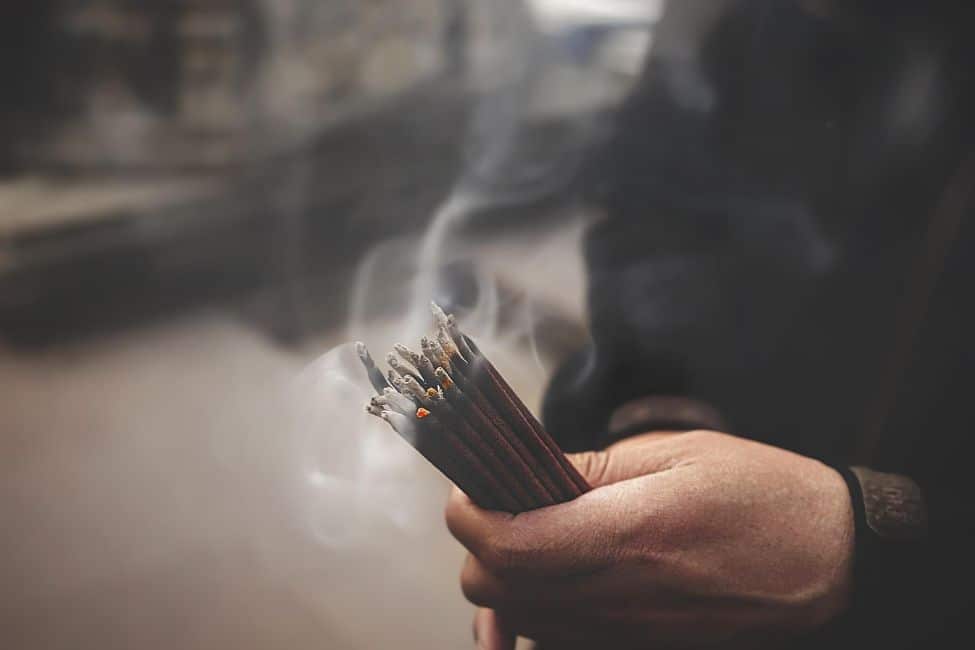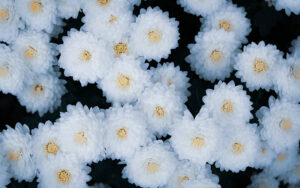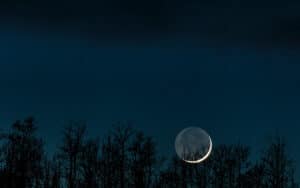Sometimes, you just want to ask “why?”
In introducing our Foundations of Ritual course, Ancestral Medicine’s founder, Dr. Daniel Foor, says, “People rarely talk about why we’re doing what we’re doing. ‘This is the practice – do this, do that.’ But there’s also benefit to pausing and examining: what is the benefit of this?” Through this invitation, we can talk about efficacy. What makes a particular practice effective? Why should I make time for this in my life?
A misconception about ritual is that the word itself implies simply “going through the motions.” A habit or a routine. A ritual can be a pleasant habit, of course – slowly preparing your morning coffee in the early stillness and silence is a form of ritual. However, if we only think of ritual as simple routines, we can miss out on an entire world of transformative and nourishing practice. That cup of coffee could simply be how you like to start your morning, or it can become an act of pause that taps into our natural seeking for meaning and connection.
As we explore in many of our Ancestral Medicine offerings, ritual is deeply rooted in intention and purpose. It can be how we take something from the philosophical or intellectual realm into an experiential, embodied reality.
Ritual is a potent and learnable form of art
“Ritual is an art that requires bringing your own personal touch, soul, passion and creativity to the practices, whatever they might be.” – Daniel Foor
If you’re new to considering the role that ritual plays in your life, it’s helpful to look at some examples. We can start to group different types of ritual into general categories:
- Centering and alignment, including many forms of meditation.
- Manifestation, prayer and appeal that certain things to come to pass in your life.
- Marking recurring cycles, such as seasonal shifts, lunar rhythms or rites of passage
- Honoring major life changes such as moving into a new house, union in marriage, death and mourning.
- Relational and communal acts that involve simply being with the spirits and powers without asking anything in return.
- Ritual for healing and for protection. Practices that specifically affect other people.
- Creativity and cultivated flow states that call forth inspiration, beauty, and expression.
Do any of these feel familiar when you reflect on your own current habits or interests? Do you recognize some from your own family lineage or community? Are there particular examples that give you pause? Notice what has energy for you and why.
You might be curious to learn more about older traditions that are in your family. Or maybe you’ve read about a well-known artist or writer who has a particularly structured ritual they engage in to access inspiration before their next project. Author Stephen King describes his daily writing ritual as a practice that helps encourage his mind to be “ready to dream,” just as we prepare the body to be ready to sleep.
Rituals can be acts we create for our own personal, private needs or interests. They can be practices we inherit or study from other sources. They can also take place in groups, which is something to consider for folks who notice they feel particularly moved or connected when in the magic of shared practice.
When starting out, Daniel encourages curious seekers to notice when they feel drawn to specific ritual forms – or even places – such as working with water, with the land, or with celestial bodies. “What you’re drawn to matters in your approach to ritual. And the rituals you do, the training you do, will be informed throughout life by what you need to take care of in your destiny.”
This introduces a powerful reason to engage with ritual – to find and meet our greater purpose for our time on Earth.
Ritual invites us to embody our core values
“What you encounter, recognize or discover depends to a large degree on the quality of your approach…When we approach with reverence, great things decide to approach us. Our real life comes to the surface and its light awakens the concealed beauty in things.” – John O’Donohue, poet and philosopher
We’ve touched on how ritual may involve things like prayer, creativity, gratitude practice, meditation, honoring ancestors, working with the spirits, and countless other forms. Holding space for these practices in our daily life helps us to make sense of the world around us.
But how, exactly? Taking time to develop a vocabulary around ritual arts helps us to more consciously and directly access everyday magic and connection. We notice subtle shifts within ourselves and in how our eyes and hearts take in the complexity of life. In this way, ritual invites us to embody our core values, in both intentional and relational ways. Nothing happens in a vacuum. Life itself is an ever unfolding ritual.
The inquiry of ritual is a sacred space for us to befriend our deeper curiosity. Why do we get stuck on the things that we do? How do we distill what truly matters, beyond habits and attachments? Over time, we can learn to loosen harmful fixations and to reorient toward what feeds life.
In Buddhist thought, attachment is the root of most of our suffering. Trauma exposure worker and author, Laura van Dernoot Lipsky, frames it this way in her book, The Age of Overwhelm: “The practice of dissolving attachment was once described to me as being open to hearing all the notes in an octave, not just the notes on the scale of our own experience (the ones that we repeat). Through being curious, we grant ourselves permission to let down our guard and appreciate the full score of our lives.”
“You can do ritual to get more clear about your path and who you are and what you’re doing here,” offers Daniel. “The motivation can be as basic as having a meaningful life, wanting to be useful, wanting to have a healthy self-esteem that arises from rendering effective service.”
How do we apply what we learn from ritual?
How boring to spend the whole of my vocational energy trying to figure out if I am choosing the right work. It is of much greater interest to me to talk about how I am going to do the work with integrity. How am I going to protect dignity as I work? And what truths are calling out to me as I work?” – Cole Arthur Riley, writer and liturgist
Through the study of ritual, we learn how even simple practices can become transformative. Part of this transformation involves not just what happens to our own lives, but also what endures long after we’re gone. Daniel suggests considering, “What depth of experience here is going to stick when the body dies? And how do we transfer that back into the larger community of ancestors?” This is how personal insight gained through ritual becomes action in our daily life. How knowledge becomes wisdom and wisdom in turns becomes generational and cultural impact.
However, getting clear on what we’re here to do is not simply a question of vocation. That’s an easy hook where folks are often snagged. While there can be some overlap, the concept of our life’s meaning – and how ritual arts can support this inquiry – is not rooted in a quest to fulfill a particular career path, says Daniel. “The question of, what are you bringing to the world, what are you here to handle, what are you here to learn? Those things are bigger than the much more narrow question of, how do you pay your bills?”
“I am suggesting that you and I and everybody else are a bit different, in spite of our shared humanity. And that difference and specificity matters. It’s possible to make it a foreground ritual intention to clarify that uniqueness and understand yourself…to allow the clarity that comes from that to inform how you spend your life, what you focus your ritual on.”
A lighthearted way to conceptualize this is a trip to the market. The ancestors / the divinity sent you to Earth with gifts to share – gifts that you’ll bring to the market. You might also be tasked with picking some things up, too – gifts to exchange and circulate back into the community. And the sense is, you want to remember your “shopping list,” or your original instructions. What are you here to get, what are you here to come back with? In this analogy, we can see how it’s beneficial to leverage ritual practices that are time honored and field tested – some over many generations – to get a feeling for what we came here to learn. Because it’s not just our own life that depends on what we do in our time here – it’s every life alongside and after ours as well.
“We’re morally obligated to be ourselves, to remember who we are in a deep sense,” explains Daniel.
If you found this post helpful, join us for Foundations of Ritual. This eight-lesson course explores different forms of ritual and why cultivating a personal practice with ritual is useful. Beginners are very welcome! The material may be particularly useful to priests, spiritual care workers, healing arts educators and practitioners of diverse traditions.




